HOW CHOLESTEROL LEVELS CAN BE LOWERED
Proven Strategies for Lowering Cholesterol Levels Naturally and Safely
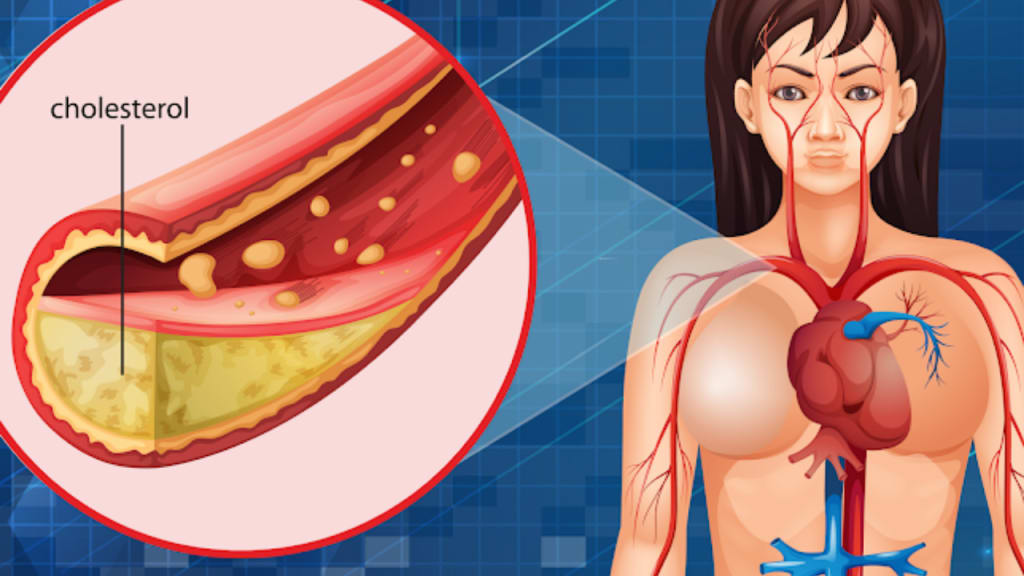
What is cholesterol?
Cholesterol is a type of lipid (fat) that is essential for the proper functioning of the body. It is found in the cell membranes of all animal cells and plays a crucial role in various physiological processes. Cholesterol is produced by the liver, and it can also be obtained through the consumption of certain foods, particularly animal-derived products like meat, eggs, and dairy.
Cholesterol serves several important functions in the body, including:
Cell membrane structure:
Cholesterol helps maintain the integrity and fluidity of cell membranes, ensuring that they function properly.
Hormone synthesis:
Cholesterol is a precursor for the production of various hormones, including sex hormones like estrogen, testosterone, and progesterone, as well as hormones that regulate stress and mineral balance.
Vitamin D synthesis:
Cholesterol is involved in the synthesis of vitamin D, which is essential for bone health and various other bodily functions.
Bile production:
Cholesterol is a component of bile acids, which aid in the digestion and absorption of dietary fats.
While cholesterol is necessary for the body to function properly, having excessively high levels of cholesterol in the bloodstream can be harmful. High cholesterol levels are associated with an increased risk of developing atherosclerosis, a condition where fatty deposits (plaque) build up inside the arteries, leading to narrowed and hardened blood vessels. This can result in various cardiovascular problems, such as heart disease and stroke.
There are two main types of cholesterol:
Low-density lipoprotein (LDL) cholesterol:
Low-density lipoprotein cholesterol (LDL cholesterol), often referred to as "bad cholesterol," is a type of cholesterol present in your blood.
However, when cholesterol levels become imbalanced, it can lead to health problems.
LDL cholesterol is called "bad cholesterol" because elevated levels of LDL can contribute to the formation of plaque on the inner walls of your arteries. This plaque buildup, known as atherosclerosis, narrows the arteries and can restrict blood flow. In severe cases, it may lead to blockages, which can cause heart attacks, strokes, or other cardiovascular diseases.
While LDL cholesterol carries cholesterol from the liver to the cells and
High-density lipoprotein (HDL) cholesterol:
High-density lipoprotein (HDL) cholesterol, often called "good cholesterol," is a type of cholesterol with a high protein-to-cholesterol ratio. HDL helps transport excess cholesterol from the arteries to the liver for removal, reducing the risk of atherosclerosis and cardiovascular diseases. It also possesses anti-inflammatory and antioxidant properties that protect blood vessels. Maintaining high levels of HDL cholesterol is considered beneficial for heart health, and lifestyle factors like regular exercise, a healthy diet, and not smoking can help raise HDL levels. However, excessively high HDL levels may not offer additional benefits and should be discussed with a healthcare professional.
What is the normal range for cholesterol levels?
The normal range for cholesterol levels can vary slightly depending on the specific type of cholesterol. However, as a general guideline:
Total Cholesterol: Below 200 mg/dL (milligrams per deciliter).
LDL Cholesterol (Low-Density Lipoprotein, often referred to as "bad" cholesterol): Below 100 mg/dL.
HDL Cholesterol (High-Density Lipoprotein, often referred to as "good" cholesterol): Above 40 mg/dL for men and 50 mg/dL for women.
Triglycerides: Below 150 mg/dL.
It's important to note that these values may vary based on individual health factors, and it's best to consult a healthcare professional for personalized guidance and interpretation of cholesterol levels.
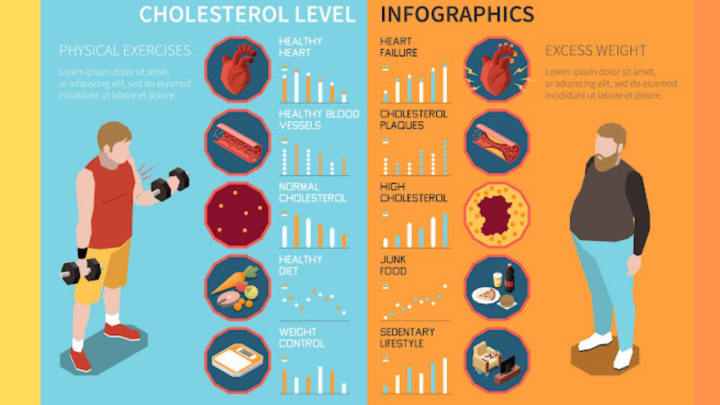
Unbalanced cholesterol levels, characterized by high LDL cholesterol and/or low HDL cholesterol, can result from multiple factors. A diet rich in saturated and trans fats contributes to elevated LDL levels. Sedentary lifestyles and excess body weight also affect cholesterol balance. Genetic predisposition, age, and gender play roles in cholesterol regulation. Conditions like diabetes, kidney and liver disease, and thyroid disorders impact cholesterol levels.
Medications like corticosteroids and certain birth control pills may alter cholesterol. Stress and excessive alcohol consumption have indirect effects on cholesterol. Addressing unbalanced cholesterol involves lifestyle changes such as adopting a heart-healthy diet, regular exercise, quitting smoking, and managing stress. In some cases, medications may be necessary. Consultation with a healthcare professional is essential to identify the specific causes and develop an appropriate treatment plan.
What Are the Symptoms of Cholesterol Problems?
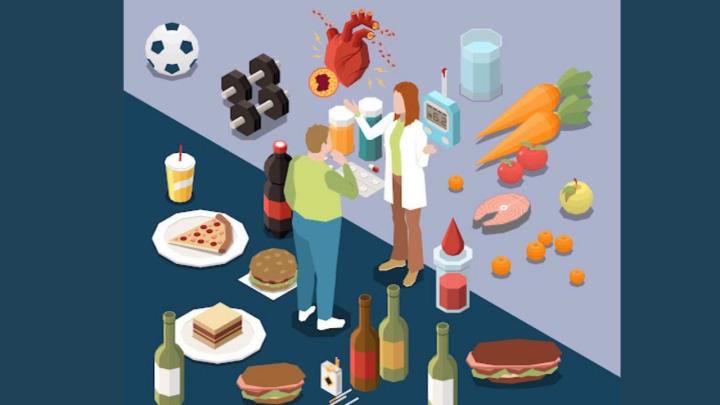
Cholesterol problems can refer to both high cholesterol levels (hypercholesterolemia) and low cholesterol levels (hypercholesterolemia).
High Cholesterol (Hypercholesterolemia):
High cholesterol itself usually does not cause noticeable symptoms. It is often referred to as a "silent" condition because people can have elevated cholesterol levels without any outward signs. The only way to detect high cholesterol is through a blood test.
However, high cholesterol levels can lead to the formation of plaques in the arteries, which may eventually cause atherosclerosis (narrowing and hardening of the arteries). Severe atherosclerosis can result in reduced blood flow to various organs and may cause symptoms such as:
Chest pain or angina:
Caused by reduced blood flow to the heart.
Peripheral arterial disease (PAD): Reduced blood flow to the legs, which can cause leg pain and cramping during physical activity.
Stroke:
If a plaque ruptures in an artery leading to the brain, it can cause a stroke.
Transient ischemic attack (TIA):
Often referred to as a "mini-stroke," it occurs when blood flow to the brain is temporarily blocked.
Exanthemas:
Fatty deposits may appear as small, yellowish bumps on the skin, tendons, or around the eyes (xanthelasma).
Low Cholesterol (Hypercholesterolemia):
Low cholesterol levels are less common than high levels and can also be asymptomatic. In some cases, very low cholesterol levels may be indicative of an underlying health issue. Symptoms of low cholesterol may include:
Fatigue and weakness:
Cholesterol is a vital component of cell membranes, and very low levels may affect cell integrity.
Memory problems:
Cholesterol is important for brain function, and extremely low levels might be associated with memory issues.
Hormonal imbalances:
Cholesterol is a precursor to certain hormones, so low levels could impact hormone production.
It's crucial to word that the signs and symptoms cited above are not one of a kind to ldl cholesterol issues and maybe result from different underlying fitness conditions as properly. The fine way to diagnose and manage cholesterol problems is thru normal fitness checkups and blood exams. If you have got concerns about your cholesterol levels or enjoy any of these signs, it's important to seek advice from a healthcare expert for proper evaluation and guidance.
How do manage cholesterol with Medicine?
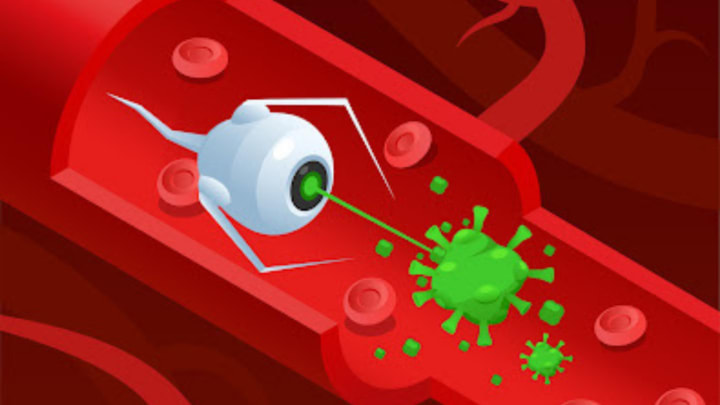
Controlling levels of cholesterol via medication is often advocated when lifestyle adjustments alone aren't sufficient to acquire target degrees or whilst a person has an excessive threat of cardiovascular disease. There are several types of medicinal drugs used to control levels of cholesterol, and they paintings in extraordinary methods. It's essential to observe that cholesterol-decreasing medications have to be prescribed and monitored using a healthcare professional. Here are some not-unusual types of LDL cholesterol-decreasing medicines:
Statins:
Statins are the most normally prescribed medicines for decreasing LDL cholesterol. They work by blocking off an enzyme within the liver this is accountable for producing LDL cholesterol. Statins generally lower LDL (awful) levels of cholesterol however can also have modest consequences on raising HDL (excellent) cholesterol. Examples of statins encompass atorvastatin, simvastatin, and rosuvastatin.
Ezetimibe:
Ezetimibe is a medicinal drug that reduces the absorption of LDL cholesterol from the intestines. It may be used by myself or in combination with statins to in addition decrease LDL levels of cholesterol.
Bile Acid Sequestrants:
These tablets bind to bile acids inside the intestines, stopping them from being reabsorbed. This technique allows the liver to use cholesterol to provide more bile acids, leading to a discount in LDL ldl cholesterol. Common examples include cholestyramine and colesevelam.
PCSK9 Inhibitors:
PCSK9 inhibitors are a more modern elegance of medicines that work by way of blocking off a protein that reduces the liver's potential to remove LDL cholesterol from the bloodstream. They are usually prescribed for people with a genetic circumstance causing excessive cholesterol or folks who cannot tolerate statins.
Fibrates:
Fibrates are pills that on the whole target triglyceride levels, however, they also can assist boom HDL levels of cholesterol to a point. They are frequently used in aggregate with statins for humans with excessive triglyceride levels.
Niacin (Nicotinic Acid):
Niacin is a B vitamin that could assist enhance HDL levels of cholesterol and lower LDL and triglycerides. However, its use has decreased due to facet outcomes and the supply of greater effective medications.
Omega-three Fatty Acid Supplements:
Omega-3 fatty acid supplements, especially those containing EPA and DHA, can lower triglyceride ranges. They are regularly used as an adjunct to other cholesterol-lowering medications.
It's vital to comply with the prescribed dosage and any commands furnished with the aid of your healthcare provider while taking ldl cholesterol-reducing medications. Regular follow-up appointments and blood exams are typically necessary to display the effectiveness of the medication and determine any facet effects.
Remember that medication isn't always an alternative to a healthful lifestyle. Even if you are on LDL cholesterol-lowering medicinal drug, it is critical to preserve with a coronary heart-wholesome eating regimen, regular exercise, and different way-of-life adjustments to optimize LDL cholesterol manipulation and basic cardiovascular health.
What are the natural methods to govern cholesterol certainly?
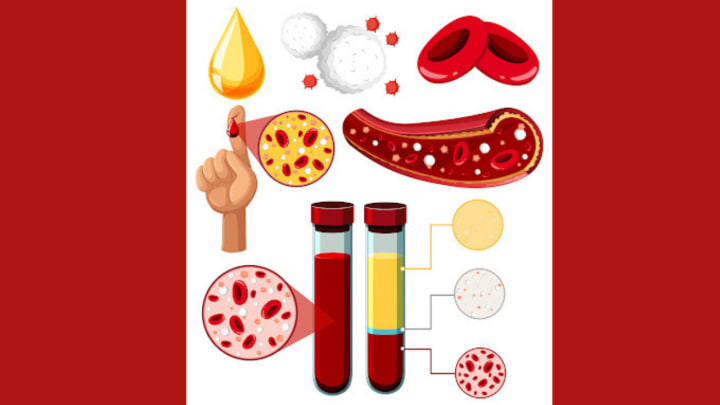
Adopt a Heart-Healthy Diet:
You can manage LDL cholesterol by way of adopting a coronary heart-healthful food regimen, which includes eating fruits, greens, whole grains, lean proteins, and healthy fat whilst limiting saturated fat and LDL cholesterol-rich ingredients. High-fiber and omega-3 fatty acid-wealthy foods can also aid in LDL cholesterol control. Increase Soluble Fiber Intake-Foods high in soluble fiber, consisting of oats, barley, legumes, and end result like apples and citrus culmination, can help lower LDL cholesterol levels.
Consume Omega-three Fatty Acids:
Control LDL cholesterol by using consuming omega-3 fatty acids located in fatty fish (salmon, mackerel), flaxseeds, chia seeds, and walnuts. Omega-3s help raise HDL (exact) levels of cholesterol and reduce triglycerides, promoting heart fitness and coping with levels of cholesterol.
Exercise Regularly:
Regular exercise is key to controlling LDL cholesterol. Engaging in moderate-depth aerobic activities like brisk on foot, going for walks, swimming, or cycling can boost HDL (accurate) levels of cholesterol and lower LDL (horrific) cholesterol. Exercise additionally allows weight control, reduces triglycerides, and improves basic cardiovascular fitness, contributing to better cholesterol control. Aim for at least 150 mins of mild exercise or seventy-five minutes of lively workout per week for large blessings. Maintain a Healthy Weight:
Losing excess weight, especially across the waistline, can definitely affect levels of cholesterol and reduce the risk of a heart ailment.
Limit Alcohol Consumption:
To control LDL cholesterol, restrict alcohol intake to slight degrees. Excessive alcohol consumption can boom triglyceride tiers and make contributions to high LDL (awful) LDL cholesterol. For men, moderation means up to 2 drinks consistent with the day, and for ladies, one drink according to the day. Reducing alcohol consumption can improve typical coronary heart health and aid in coping with levels of cholesterol.
Quit Smoking:
Quitting smoking is essential for controlling cholesterol levels. Smoking damages blood vessels, main to irritation and reducing HDL (precise) LDL cholesterol. It also raises LDL (terrible) LDL cholesterol and increases the hazard of atherosclerosis. By quitting smoking, you may improve your cardiovascular health, aid healthy levels of cholesterol, and reduce the threat of heart disease and associated headaches. Seek guidance from healthcare specialists or support corporations to help you quit correctly.
Use Healthy Cooking Oils:
Control LDL cholesterol by the usage of healthful cooking oils like olive oil, avocado oil, or canola oil. These oils are wealthy in monounsaturated fats that can assist lower LDL (bad) levels of cholesterol. Limiting the use of dangerous fat, such as Trans fats and saturated fat discovered in processed and fried meals, can similarly sell heart fitness and contribute to handling cholesterol levels efficaciously.
Incorporate Nuts and Seeds:
Incorporate nuts and seeds into your weight-reduction plan to govern cholesterol. Almonds, walnuts, chia seeds, and flaxseeds are rich in coronary heart-wholesome fats, fiber, and plant sterols that may lower LDL (terrible) cholesterol levels. Snacking on these nutrient-packed meals can be a powerful way to improve LDL cholesterol profiles and aid ordinary cardiovascular health. However, component manipulation is critical as they're calorie-dense.
Manage Stress:
Managing strain is critical for controlling cholesterol. Chronic pressure can result in bad habits like overeating, lack of workouts, and smoking, which could negatively impact cholesterol levels. Engage in rest techniques like meditation, yoga, deep respiration, or pastimes to lessen strain and promote coronary heart fitness. Adequate sleep and social support also can play a substantial role in handling strain and preserving healthy levels of cholesterol.
Remember, it is important to seek advice from a healthcare expert earlier than making good-sized adjustments to your food plan or lifestyle, specifically when you have current health conditions or are taking medicinal drugs. They can offer personalized recommendations and guidance tailor-made to your unique desires.
What are the benefits of retaining a terrific cholesterol stage?
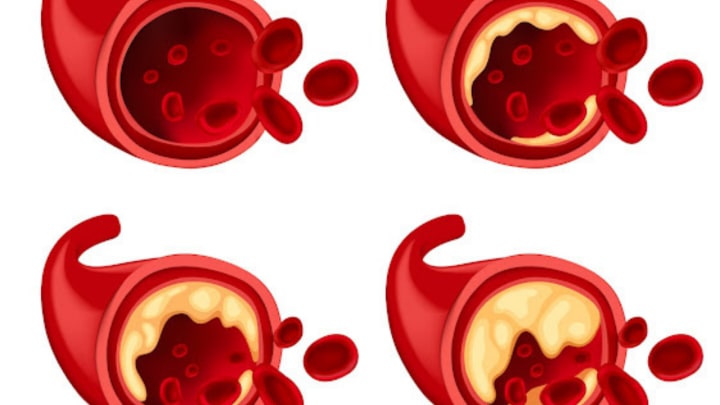
Maintaining a very good LDL cholesterol stage is important for ordinary health and well-being, specifically for heart health. Here are some of the important thing benefits of getting healthy cholesterol levels:
Reduced Risk of Heart Disease:
High ranges of low-density lipoprotein (LDL) cholesterol, regularly referred to as "horrific" LDL cholesterol, can cause the accumulation of plaque in the arteries, narrowing them and increasing the danger of coronary heart sickness. By preserving healthful levels of cholesterol, especially retaining LDL ldl cholesterol in take a look at, you can decrease the chance of heart assaults and strokes.
Improved Cardiovascular Health:
Healthy cholesterol levels sell higher cardiovascular characteristics. When the arteries are clean and flexible, blood float improves, lowering the strain on the heart and lowering the chance of hypertension and other coronary heart-associated conditions.
Higher High-Density Lipoprotein (HDL) Cholesterol:
HDL cholesterol regularly referred to as "correct" cholesterol, performs a protective position with the aid of sporting excess ldl cholesterol far away from the arteries to the liver for excretion. Higher stages of HDL cholesterol are associated with a decreased hazard of coronary heart disorder.
Lower Risk of Atherosclerosis:
Atherosclerosis is the hardening and narrowing of arteries because of plaque buildup. Maintaining healthful levels of cholesterol allows preventers sluggish this system, decreasing the threat of blocked arteries and related complications.
Better Blood Circulation:
When cholesterol levels are in the healthful range, blood flows extra smoothly thru the blood vessels, selling better flow for the duration of the frame.
Reduced Risk of Peripheral Artery Disease (PAD):
PAD occurs when arteries inside the legs and toes grow to be narrowed or blocked due to atherosclerosis. Healthy cholesterol levels assist reduce the hazard of PAD and its associated complications.
Preservation of Endothelial Function:
High levels of cholesterol can harm the endothelium, the internal lining of blood vessels. Maintaining top cholesterol levels supports endothelial fitness which is vital for keeping healthy blood strain and preventing clot formation.
Enhanced Brain Health:
Healthy levels of cholesterol are related to higher brain features and a reduced chance of cognitive decline and neurodegenerative diseases.
Improved Energy Levels:
Better cardiovascular fitness and blood circulation cause advanced oxygen and nutrient transport to cells and tissues, ensuing in elevated energy ranges and normal power.
Lower Risk of Metabolic Syndrome:
Metabolic syndrome is a cluster of situations that consist of excessive blood pressure, high blood sugar, excess frame fats, and odd levels of cholesterol. By dealing with cholesterol levels, the risk of developing metabolic syndrome is decreased.
It's important to be aware that even as keeping exact cholesterol levels is useful, it's just one component of basic heart fitness. Other lifestyle factors, along with a balanced weight loss program, regular workouts, pressure management, and not smoking, also play crucial roles in selling a healthy heart and lowering the danger of cardiovascular sicknesses.
About the Creator
Dinesh Premabandu
As a freelance writer and researcher, I am a passionate and dedicated individual with a keen eye for detail and a love for words. With broad of experience in the field, I have honed my skills in producing high-quality contents any topics






Comments (1)
It's well-written and full of valuable information.